CMS Requests Comments to Strengthen Medicare Advantage
On Monday, July 28, 2022, CMS published a request for information on Medicare Advantage to strengthen the program in ways that better align with the Vision for Medicare and the CMS Strategic Pillars.
Comments are requested on advancing health equity, strengthening beneficiary access (including telehealth, network adequacy, and prior authorization), promoting person-centered care, affordability and sustainability, and engaging partners.
“Medicare Advantage is a critical part of CMS’ vision to advance health equity; expand access to affordable coverage and care; drive high quality, person-centered care; and promote affordability and sustainability of Medicare,” said CMS Administrator Chiquita Brooks-LaSure. Comments are due August 31, 2022.
John Oliver Provides Visibility to the Mental Health Treatment Crisis
On Sunday, July 31, Last Week Tonight with John Oliver discussed the mental health crisis in the United States. The well-informed piece covered workforce issues, pay-parity, telehealth, ghost networks, poor prosecution of insurance companies that violate parity laws, and the reversal of Wit v. UBH. The Kennedy Forum collaborated with producers of the segment and produced a Wit v. UBH Partner toolkit.
National Academy Publishes Proceedings on Methadone Regulations
In July, the National Academies of Sciences, Engineering, and Medicine released the prepublication document Methadone Treatment for Opioid Use Disorder: Improving Access Through Regulatory and Legal Change: Proceedings of a Workshop.
These proceedings are not a consensus document, but rather summarizes the presentations and discussions of the Methadone Treatment for Opioid Use Disorder: Examining Federal Regulations and Laws, a workshop that was held in March 2022.
The workshop and proceedings were funded by the White House Office of National Drug Control Policy.
NABH Annual Membership Update: 2022 Membership Directory
NABH is developing its online-only 2022 Membership Directory, an essential member benefit that helps the association in its advocacy efforts.
Last week, NABH sent its system members a separate message that includes a link to the association’s membership-update tool. To help ensure we have the most accurate information on our members, please use the link to our membership-update tool and verify your system’s information.
NABH has added several new categories this year. The answers to these questions will help us provide a more accurate description of our diverse membership to policymakers, regulators, partner organizations, and the media. Please be sure to enter information for all of your system’s facilities so that we have a better picture of our diverse membership.
The deadline to submit your changes to NABH is Friday, Aug. 19, 2022. If you need assistance, please contact Maria Merlie at maria@nabh.org. Thank you!
Enhanced NABH Denial-of-Care Portal is Now Available!
NABH announced enhancements to its Denial-of-Care Portal that are intended to make the portal easier for members to use.
A year ago, NABH developed the Denial-of-Care Portal to collect specific data on insurers who deny care—often without regard to parity or the effects on patients. Now the association has updated this resource to make it more user-friendly for members and also more aligned with what regulators need to identify parity violations.
The updated portal includes fewer questions, which will require less time for members to complete. In addition, all questions are now optional. NABH hopes this will make it more likely for members to share the data they have. Lastly, NABH has added a checklist of “red flags” that were included in the 2022 MHPAEA Report to Congress from the U.S. Health and Human Services, Labor, and Treasury Departments in January.
“We know the best way to advocate for parity enforcement with regulators is to provide hard data from our members that show how insurers are not complying with the landmark 2008 parity law,” said NABH President and CEO Shawn Coughlin. “We hope these new changes will make it easier—and faster—for our members to use so that we can gather that critical data.”
Please e-mail Emily Wilkins, NABH’s administrative coordinator, if you have questions about the portal.
Fact of the Week
In a study conducted over a 22-year period, concerns expressed by participants about the dangerousness posed to others by individuals with schizophrenia increased 13 percentage points from a little more than half in 1996 to almost 70% in 2018. The study results also indicate a substantial increase in the public acceptance of the biomedical causes of mental illness, suggesting that education and public health campaigns may not change public attitudes.

